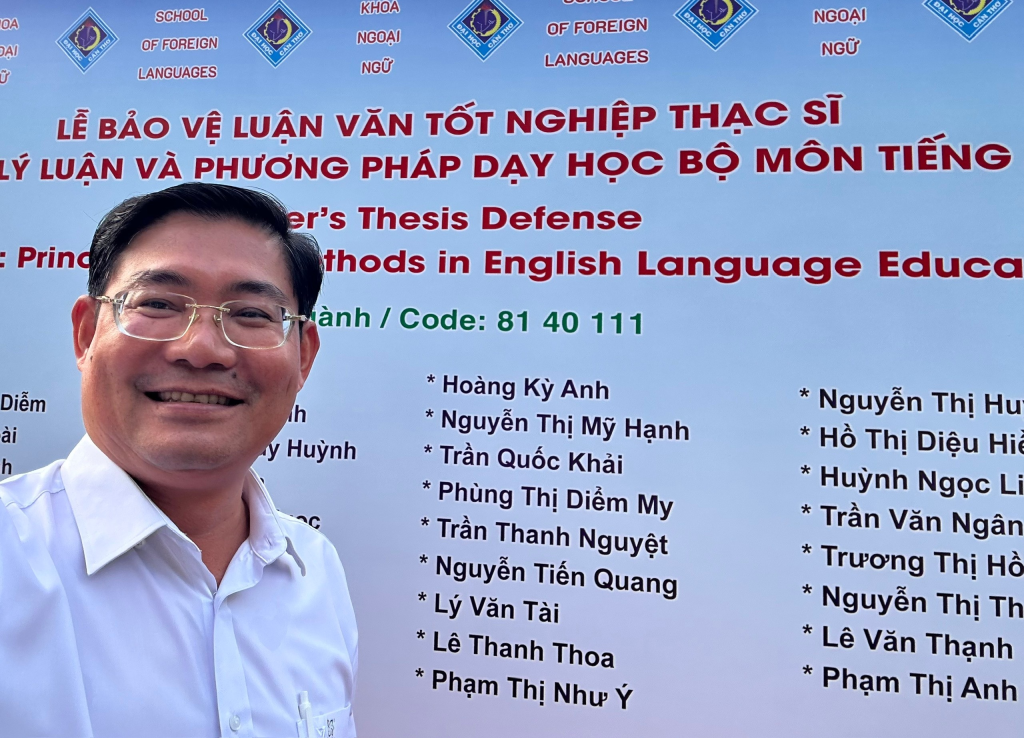My Thesis Title

Choosing a suitable title for my thesis took a lot of work. Initially, I considered options like “Innovative Teaching Strategies,” “Modern Approaches,” and “Effective Techniques.” However, I realized that these titles were too broad and failed to convey the specific focus of my research, which examines teacher education, educational administration, and parental involvement.
Seeking guidance from my advisor, peers, and thesis writing workshops, I refined my understanding of my research’s core focus—teacher evaluation. This process led me to finalize a more precise title: “The Implementation of Standards-Based Teacher Evaluation in Vietnamese Secondary Schools: A Case Study in Dong Thap.”
The title is purposefully kept concise, within 15 words, to ensure it is clear, memorable, and easy to reference. It highlights the central theme of “standards-based teacher evaluation,” addressing teacher professional development and its practical implementation. Including “Vietnamese Secondary Schools” narrows the research context to a specific educational system, emphasizing the study’s relevance to a localized setting. The mention of “Case Study” signals a detailed methodological approach, while “Dong Thap” specifies the region, making it clear that my findings are context-specific.
By keeping the title focused, specific, and succinct, I aim to make it understandable for readers. This approach reflects the educational significance of my research and underscores its practical implications for policymakers and educators in similar contexts.
This refined title accurately reflects the core elements of my study, focusing on standards-based teacher evaluation. It clearly defines the subject of my research, emphasizing its relevance to teacher professional development. I narrowed my research scope by including “Vietnamese Secondary Schools” in the title, allowing it to target a specific educational system and geographical context. This focus on a defined region ensures that my research remains relevant to the local academic environment and adds value to discussions on how teacher evaluations can be implemented effectively within this context.
Furthermore, the phrase “Case Study” in the title indicates my methodological approach, highlighting that my research involves an in-depth examination of a particular setting. By specifying “Dong Thap,” I emphasized my study’s cultural and geographical specificity, making it clear that my findings are particularly relevant to this region. This specificity helps educators and policymakers understand how standards-based evaluations are adapted locally, shedding light on practical challenges and successes.
The choice of words in my title reflects its educational significance and the practical implications of implementing teacher evaluation systems, which is a crucial topic in educational reform. Through this research, I hope to contribute to the broader understanding of standards-based evaluation practices, particularly in the Vietnamese secondary education context.
I love my thesis title!